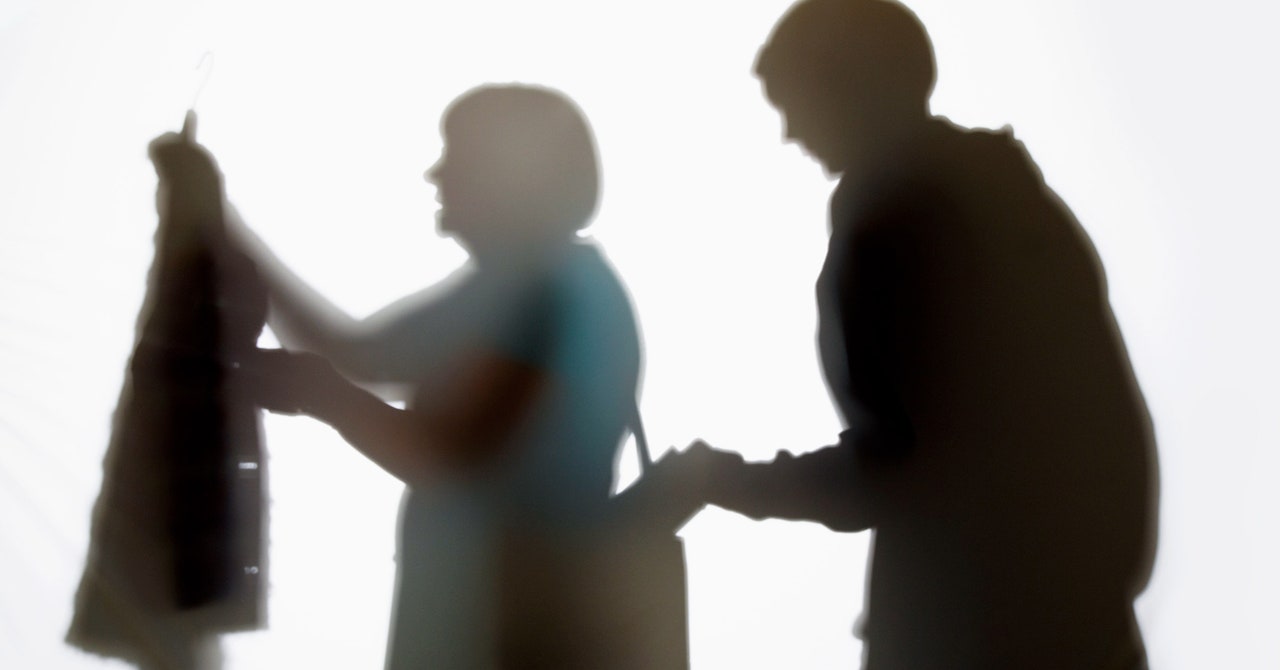

For the past 21 years, James has worked for a private security company as a plain-clothes officer in high-street stores, mainly on London’s Oxford Street. He’ll often film the people he detains, either to show to the police or to share with his colleagues over WhatsApp. But since February, he’s found a new home for his footage: his TikTok account, @london_content, which already boasts nearly 100,000 followers.
In his most-watched video, viewed more than 25 million times, an alleged shoplifter can be seen removing items from her skirt, soundtracked to Sam Smith’s “Unholy.” The caption reads simply: “She got caught.” Other videos claim to show people pickpocketing or suggest they might be part of a “begging scam.” Now, on his days off work, James will walk the streets of London in the hope of capturing illegal activity—in other words, more viral fodder for his TikTok.
“I’ve had people comment thanking me, saying that it’s helped them spot pickpockets on the streets,” he claims. “And people love the content.”
While it’s true that @london_content and accounts like it are growing in popularity on TikTok, not everyone enjoys the videos they share. Stefan Bloch, a professor of cultural geography and critical criminology at the University of Arizona, argues that social media content showing people allegedly committing crimes could worsen neighborhood paranoia and imagined threats, which are often racialized. “We turn to these surveillance technologies to reaffirm the stereotypes we already have and to validate our fears,” he says. He compares it to other neighborhood watch apps, such as Nextdoor and Citizen, which similarly capture and reflect communities’ prejudices.
“The only positive effect that these videos could have is holding people with more power accountable,” Bloch adds. This includes state abuses of power, such as police brutality. But as Bloch argues, filming already marginalized people without their consent is much harder to justify.
James doesn’t see it this way. He asked WIRED not to share his identity because he’s not permitted to post these videos of his work, but he doesn’t think the subjects of his videos should be given the same anonymity. For him, the question of whether he should be filming people, and potentially implicating innocent ones, is not a factor. “I show their face to warn people and make them aware,” he says.
James isn’t the only vigilante posting this type of content to TikTok. Videos of alleged petty crimes are proliferating on the app; many of them can be found under the “shoplifter” hashtag, which has 863,200 million views, and “theft,” which has 1.5 billion views. And there are now dozens of anonymous accounts devoted to sharing this kind of content, among them @shoplifterhero, @stolenwatchgroup, and @gasstationthieves0. While the people uploading this content often maintain, like James, that they’re seeking justice or raising awareness, their videos—which typically deploy trending sounds on the app—are a controversial form of entertainment.
When asked about its policy toward videos that show people alleged to be carrying out crimes, Anna Sopel, TikTok’s safety and policy spokesperson for the UK, said, “Our Community Guidelines are clear that we do not allow content that depicts or encourages criminal activity, including theft, on TikTok. We do allow content that clearly condemns illegal activity, however we do not tolerate members of our community being harassed, and abusive content will be removed from our platform.”









